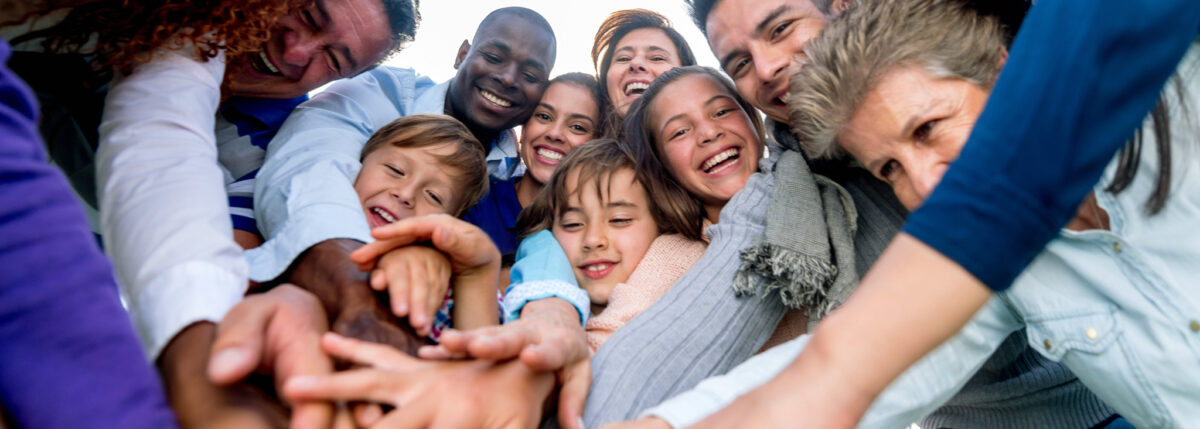Mental Health Check-In: Identifying + Processing Trauma
Written by: Beyond Type 1 Editorial Team
12 minute read
March 10, 2021
Over the past year, we’ve collectively faced an intense and stress-inducing time due to COVID-19. Even with some light at the end of the tunnel approaching due to vaccines, we will each be dealing with and processing the ramifications of this past year for some time, and nowhere is that more true than the year’s impact on our mental health. So we spoke with diabetes psychologist, Dr. Mark Heyman about how to identify stress versus trauma, when and how to get help, and how much similar issues come up when we’re dealing with diabetes, from diagnosis to low blood sugars and more.
For more mental health + diabetes content, check out Dr. Heyman’s podcast at thediabetespsychologist.com
Watch the entire roundtable discussion in full:
The following transcript has been edited for content and clarity.
Lala: Today, we’re going to be talking about trauma—how to identify it, some of the tools and resources to help us through it. Dr. Heyman, can you start to give us a little bit of an overview of what trauma is?
Dr. Heyman: The definition of trauma is real or perceived danger and threat of death or serious injury. So if you are in a car accident, if you experience a sexual assault, if you have been diagnosed with diabetes, that is the definition of a trauma. Also, if you have a close friend or family member who has experienced that and you have a belief or an actuality that you’re going to lose them and they’re going to be seriously injured or die in a situation, that’s considered a trauma.
I think that often times trauma is thrown around as a buzzword and as a substitute for stressful situations. And not that stressful situations are not challenging for all of us to deal with, and also I think that there’s a lot of similarities in ongoing stress like COVID, and in quarantine and being in this situation for a long time. But that is not the definition of trauma. The definition of trauma is having an event or sometimes a series of events where you are in danger of dying, or you perceive that you are in danger of serious injury or death.
Lala: What are some of the ways that someone might be able to recognize that they did in fact go through something that their minds and body are processing as a trauma?
When somebody experiences trauma, and I’ll use the example of a car accident as an example here, generally speaking, what happens is your anxiety level increases and that’s a natural thing. We would hope that would happen because it’s your body’s way and your mind’s way of keeping you safe. And what happens is you have a couple of symptoms, oftentimes you have what we call re-experiencing, and so you have either intrusive thoughts, or you have nightmares around that event.
You also have what’s called hypervigilance, which means that for example, the car accident, you may be nervous to see a car or nervous that’s the first time you drive after your car accident. So you’re going to be vigilant and kind of be on guard.
And then the third symptom that we see is what’s called avoidance. And that’s exactly what it sounds like—you avoid situations, people, things that remind you of that trauma. But when those happen, those aren’t problematic in and of themselves, those are actually a really natural response.
What the challenge with trauma is, is when those symptoms of re-experiencing, avoidance, and hypervigilance stay with you and they don’t resolve—because naturally they should resolve—but when you get stuck in those symptoms and you stay there in that hypervigilance, avoiding, re-experiencing state, that’s where it becomes really problematic for us, because the context is different in your life, because you’re not in danger anymore, but your body and your mind is telling you that you are still in danger. And that can cause all kinds of challenges in our functioning and our ability to live in the world in a really effective way.
Lala: I want to go through some of the things that I’ve heard on the internet to debunk and maybe verify some things. One of the phrases that I’ve heard is that you can’t process trauma while you’re in it. Can you clarify that statement?
I think that’s probably a fairly accurate way of putting it, because when you’re in a traumatic event or you’re experiencing a traumatic event, or you’re experiencing ongoing stress, your goal is to keep yourself safe.
And so if you’re on guard because there is a danger coming at you, either perceived or real, and you want to stay alive and your mind is telling you to stay alive, your mind doesn’t have the capacity to process that. Your goal is to stay alive.
It’s kind of like having a low blood sugar—when you’re low, all you want to do is eat and get your blood sugar up, because your body knows that if you don’t do that, you can get yourself into some really big danger and really big trouble there.
And so, not that trauma and low blood sugar are in any way equated, but it’s the same concept your body is telling you, “I need food.” Your body’s telling you, or your mind’s telling you, “I need to get out of this situation.”
And you cannot process something while you are in it, because those symptoms that we just talked about are actually really helpful for you. They’re keeping you safe in that place.
When you’re outside of that situation and those symptoms continue in the long-term, that’s where things get challenging, that’s where the processing really needs to happen.
Lala: If I think I may have been through something, what are some tools I can use to just kind of assess where I’m at? I think in this day and age, we’re often taught to just kind of push through it, and if you just keep going, the bad stuff will go away. But how can someone really look at themselves and figure out if this is something that they might need some help processing?
The simple answer is looking at your behavior and how you are right now and how that’s impacting your ability to live in the world.
Is it impacting your work? Is it impacting your relationships? Is it impacting your sleep? And if you’re having trouble in your relationships because of a diagnosis with diabetes, or because of some other trauma, that’s really making you stay away from relationships or be overdependent on relationships, if you’re having trouble sleeping and you’re having nightmares on a regular basis, and that’s impacting your ability to work, because you’re so tired, if you’re not able to focus on your work, those are some really good signs that you might need help because the trauma is not resolving on its own.
Again, I look back to using the example of a car accident. So imagine that you get in a car accident today, God forbid. And so you get your car towed, you get it fixed, and it comes back to you, and so you go and you get in your car and you drive it for the first time, maybe next week after it’s all fixed up. You’re probably going to be a little bit nervous and that’s normal. You’ve just experienced something pretty traumatic and now you are trying to kind of process that and move through it and show yourself that driving is generally a safe thing, although the thing that happened to you that one time is a one-off, but you’re going to be nervous.
And so you do it, but the more you’re able to drive and see that you’re safe driving, then the easier it gets. But if the same situation happens and you go to get in the car and you cannot get yourself to open the door, or you can’t get in the car without taking three Xanax. And so you’re avoiding that anxiety in that way, that shows you that you’re not able to function at a high level like you want to. And the trauma is the reason why, and that’s a good sign that you may need some help.
T’ara: While you were talking, I was thinking, this is probably the best example of collective trauma that we’ve been through in our lifetimes with COVID. And I feel like we’re still in that state of hypervigilance and sensing danger, and I think as people with diabetes, we know that our risks of severe complications or even death from COVID are very real. But we are starting to see that sort of light at the end of the tunnel, people are getting vaccinated, but I don’t think that means that the trauma is going to just go away. So what are some ways that we can start to process our traumatic experiences, especially as people with diabetes going forward? What are some tools that we can use?
I think, community is really number one, both using the resource of the community that we have, but also talking about it and just being open about how this experience has impacted all of us, and it impacted us individually and impacted us as a society. I think that’s number one.
I think that the number two thing is really using the data to drive our behavior. I’ve talked to a lot of my patients recently about this, many people who have been very, very isolated because of COVID, both because there’s nothing to do, but also because they have fears about it. And talking about what’s going to happen next, once they get vaccinated or once the world opens up, and there’s a lot of people who are really saying, “I’m not sure I’m going to be going out until 2023.”
And that’s a really kind of scary and a really kind of a hopeless place to be. And my response to that is, up until now and even right now, not going to restaurants, wearing a mask, all of those things, those are really important things. Those are really functional. And those things are keeping us safe.
But there’s going to be a time in the future, hopefully sooner rather than later, when those things are not going to be necessary anymore. And they’re not going to be helpful anymore. And not socializing is not going to be helpful anymore. But if we continue in the belief that we are in danger there, and that goes against what the evidence is showing us, the case rates are down, you’re vaccinated, then you get stuck in this traumatic cycle of not being able to process, not being able to move forward.
And so what I would suggest that people do is of course follow the public health guidelines, do not disregard them. But when the public health guidelines say, “It’s okay to go to the grocery store and not wear a mask,” or, “It’s okay to go to a restaurant and eat inside.” And you may feel a little bit uncomfortable doing that, I would really encourage you to push yourself to do that, because that continued avoidance is going to keep you stuck.
Trauma and traumatic events are very contextual. And when you’re experiencing the trauma, or when you’re in danger, those types of behaviors are keeping you alive. But when the context is different those types of behaviors are keeping you stuck, and it’s important to recognize that context.
And if you’re having trouble recognizing that or having trouble taking those steps when it’s safe, and when it’s objectively safe, that may be a time where you need some professional help, because trauma and PTSD—post traumatic stress, which is that stuck place after a trauma—those things generally don’t resolve on their own. Those are things that really require some help in getting you to a place where you can be more flexible in the world.
T’ara: I’ll even say there is no shame in getting extra help or professional help. I know for me, I started therapy in COVID just because of how scary it is… But even then, we know that this isolation that we’ve been in for a year can definitely take a toll, especially how we interact with one another. How do we make sure that our personal traumas are not impacting others? How do we make sure that we’re not lashing out and taking out our anger and fear on other people?
Each one of us has to do some introspection in, and really make sure that that’s not happening. I think that the first piece of advice is to do that introspection and say, “I’m angry right now, or I’m feeling stressed right now. And I’m lashing out at my friends and family, what’s causing that? Is it them or is it me?”
And maybe it’s them, but most likely, or more likely than not, it may be you, especially kind of given the stress you’ve gone through. And so if you’re able to see that and you’re able to use that introspection and be able to look at yourself from the outside and make change, then that’s really helpful. Also, it can be really helpful when you notice yourself getting that anger or that lashing out, that impulse to lash out is to take a deep breath and just give yourself a beat and see if you can make a choice not to.
If you’re having trouble making that choice, if you’re having trouble being able to choose whether or not you lash out or not, you may need some professional help. But if you’re able to do that on your own, and you’re able to calm yourself down and be intentional about how you respond, you have the ability to do this on your own.
But again as you said, there’s no shame in getting help, because staying in that stuck place, it generally becomes even more stuck and more stuck the longer it happens.
T’ara: Someone close to me went on vacation. They got on a plane travel because they were like, “I am tired. I need a break.” And instead of asking them, “Well, what’s going on? How can I help?” I went straight to, “you shouldn’t be doing this. You shouldn’t be doing that. You’re going to kill yourself. You’re going to kill someone else.” Like just completely lashing out and not recognizing that I was projecting my fear onto that person.
I think that COVID—I think that in some instances it’s this trauma, but in some instances it’s ongoing stress. And in some ways that can be actually even more challenging to deal with because it’s day-to-day, every day is Groundhog day, same thing over and over again.
And that’s stressful for all of us. And so we feel very boxed in and have a difficulty just being in the world because it’s hard to right now. And so, that sort of stress builds up and then we take it out on other people. I certainly been guilty of that as well.
T’ara: I think what you said about introspection is right. I think, especially as the world kind of starts to open up more people are getting vaccinated. So more people are itching just to get out there. If you’re feeling super strong feelings I would probably say to journal it out, write it down and really analyze where those deep feelings are coming from.
I want to say, when we’re talking about trauma, and if you are looking for professional help around trauma, I would really encourage you to make sure that you find a therapist who knows what they’re doing with trauma. And there’s a couple of reasons I say this.
One is that trauma therapy is hard. It’s hard for the therapist. It’s hard for the person getting the therapy, but it’s also hard for the therapist because the therapist’s job here is really to push the person out of their comfort zone. It’s certainly with compassion. But if someone comes to me who’s experienced trauma and they say, “I’m really worried about leaving my house, because I’m worried that I’m going to have a low blood sugar when I leave my house.” Okay. Fair enough.
If I said, “Well, then, I think what you should do is just stay home. I think we should, in order to keep you calm in order to keep you not stressed, I want you to stay home. And that’s probably a good thing for you.” That’s actually doing the exact opposite of what needs to happen.
What needs to happen is for us to assess the risk. And then if the risk is at an acceptable level, objectively push the person to become uncomfortable. And that’s hard to do. And if you’re not trained to do that well, it’s easy to get trapped in this way of like, “Oh, it’s going to be okay, stay home.” And so finding a therapist who is trained in trauma therapy is important.
T’ara: Can you give some tips on how people can find or at least interview with therapists and make sure that that therapist is actually trained in that? Or if that therapist will be for them? What are some common things that you should ask a potential therapist?
There are a couple of evidence-based treatments for PTSD and for people who’ve experienced trauma. I would say that there are three big ones. One is called prolonged exposure. It’s a therapy where the person is asked to recount the trauma out loud, as a way of processing it, as a way of kind of making sense of it. So making the list of things that are scaring you that you’re not doing, and going and doing them on a greater level.
The other one’s called cognitive processing therapy, which is a cognitive therapy, which really focuses on a couple of different areas, including safety, trust, intimacy and seeing how the trauma has impacted those areas and really finding ways to reframe your thoughts and then moving your behavior forward in those areas.
And the other one is called EMDR, which is a therapy where it includes bilateral stimulation. So, you know, tapping—it’s evidence-based because it helps the brain to process it, as well as to have those exposures.
So asking a therapist how they treat trauma, and what evidence is in place to support the treatments that they use. If they’re unable to answer that question, they’re not the right therapist for the person who’s experienced trauma. Because therapists who are going to help you deal with stress with your relationships may not be the right therapist to help you if you’ve experienced a traumatic event like a diabetes diagnosis, like a car accident, a sexual assault, or having COVID or having a family member who’s had COVID.
Just like you wouldn’t go see your dermatologist for your diabetes, you don’t want to go see a relationship therapist for a trauma-related issue.
T’ara: Thank you for answering, Dr. Heyman. Those are really good tips.
Lala: I think my last question, Dr. Heyman—if you have a loved one, that you can see has clearly gone through, or is going through a trauma, but is maybe reticent to recognize that or reticent to get help, what’s the best way that we can lend support to those loved ones who are going through something?
I think the best way is really being transparent about what your observations are about what’s happened to that person, how it has impacted them, and also how that’s impacting you. For example, let’s say that your mom is this person that you’re seeing is having a lot of trouble because of a trauma because of COVID. And that’s impacting her ability to come over to your house for dinner, or to talk to you on the phone for that matter.
So saying, “Mom, I’m really concerned about you because it used to be, we talked on the phone every three days, and now I talk to you on the phone once a month—you seem like you’re having a really hard time. And I really want to regain that relationship. And I want to do whatever I can to do that as well, but I want to let you know that what’s happening to you, seems to be impacting you a lot, but it’s also impacting me. And so what can I do to support you in helping us to get back what we had before?”
And so I think that kind of, that sort of transparency—letting somebody see how what’s happening is impacting them, which they may not be aware of, but also how it’s impacting you. You can give them both sides and hopefully give them the courage and motivation they need to get help if they do need that.
Thank you so much, Dr. Heyman, any closing thoughts on trauma and what we’re all going through?
We’ve all experienced stress over the past year, and it’s been significant. And I think it’s going to be a little bit of a road getting out of this situation. When things get back to ‘normal’ I think it’s going to be hard for all of us to do that, because we’re just so used to being in this place of not doing things and it’s going to be really weird to have people in your house again, or go to a restaurant again.
Be patient with yourself and just give yourself some grace, but also when it’s safe and when the public health officials are letting us know that it’s safe, push yourself to be uncomfortable in those situations. Because the last thing we want to do is continue to get stuck and kind of have this collective trauma impacting our lives in the future.
The more we can push ourselves to get back into a routine that may not feel comfortable right away, just like things didn’t feel comfortable when we started this whole process, we didn’t know what was going on, the same thing is going to be the process for getting out of it.
Because now we’re so used to it. And we’re used to, even though it’s not comfortable at all, we’re used to the discomfort. And so we’re going to have to kind of get back into that. And it’s clearly a process.
So patience and grace, a willingness to seek out support, if you need it, whether it’s friends and family, the diabetes community, or a professional.

Author
Beyond Type 1 Editorial Team
This interview was conducted by T'ara Smith and Lala Jackson, members of the Beyond Type 1 editorial team.
Related Resources

While there is still no exact cause of type 1 diabetes (T1D) or cure, new...
Read more

Living with a chronic condition like type 1 diabetes (T1D) can impact your mental health...
Read more

We’re inundated with messaging about “mindfulness” in our culture. Sometimes it seems to refer to...
Read more

